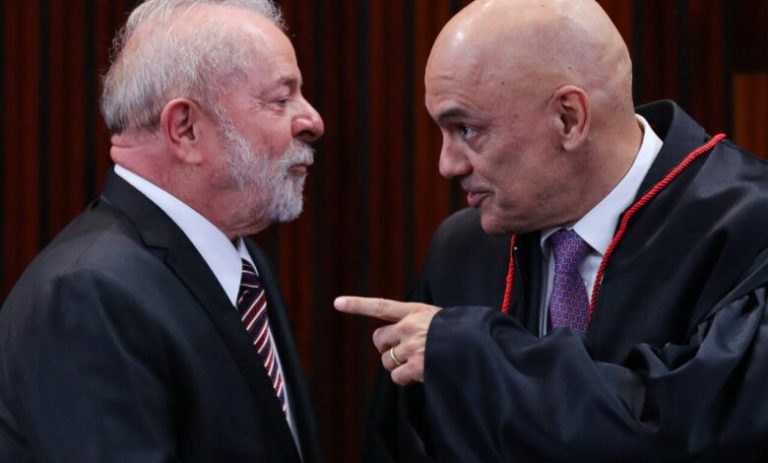- The Shadow of Judicial Overreach: How Brazil’s State-Owned Enterprises Are Draining the Nation DryIn the hallowed halls of Brazil’s Supreme Federal Court (STF), a single decision in 2023 has unleashed a torrent of fiscal recklessness that continues to erode the foundations of our economy.
- By suspending key provisions of Law 13.303/2016—the statute designed to enforce merit-based hiring and transparent governance in state-owned enterprises—the STF handed the Lula administration a blank check to staff critical institutions with political loyalists. What followed was not innovation or efficiency, but a predictable cascade of mismanagement, ballooning deficits, and a staggering burden on the Brazilian taxpayer. As we mark the second anniversary of this ill-fated injunction, the projected R$58 billion deficit in state enterprises for 2025 stands as a grim monument to the perils of unchecked judicial activism and executive favoritism.
- At its core, Law 13.303/2016 was a beacon of reform, born from the ashes of scandals like Lava Jato that exposed how politicized appointments festered into systemic corruption. It mandated rigorous selection processes, performance evaluations, and accountability measures to ensure that Brazil’s crown jewels—banks like Caixa Econômica Federal, pension funds such as Previ, and regulatory autarchies—were run by competent professionals, not partisan hacks. But in a move decried by critics as an assault on democratic checks and balances, the STF’s injunction effectively neutered these safeguards for nearly a year. The result? A frenzy of rapid-fire appointments that prioritized ideological alignment over expertise, flooding these entities with appointees whose primary qualification seemed to be unwavering loyalty to the ruling coalition.
- The economic fallout has been nothing short of catastrophic. State-owned enterprises, once engines of national development, have devolved into black holes of inefficiency. Consider the numbers: by mid-2025, operational losses across these institutions have surged by over 40% year-over-year, driven by misguided investments, bloated payrolls, and procurement scandals that echo the darkest days of pre-Bolsonaro governance. The R$58 billion shortfall projected for next year isn’t an anomaly—it’s the direct progeny of this hiring free-for-all. In pension funds alone, unqualified executives have greenlit risky asset allocations that have wiped out billions in returns, forcing the government to pump in emergency funds that could otherwise bolster infrastructure or tax relief for struggling families.
- This isn’t mere incompetence; it’s a deliberate sabotage of fiscal prudence. With meritocracy sidelined, decision-making has become a game of patronage, where contracts are awarded to cronies and budgets are shredded to fund pet projects. Brazil’s sovereign debt-to-GDP ratio, already teetering at unsustainable levels, has spiked further as these enterprises lean on federal bailouts. Inflation, that silent thief, creeps higher as the Central Bank grapples with the inflationary pressures from deficit-financed spending. Small businesses, the true backbone of our economy, suffer the most: higher borrowing costs, squeezed credit lines from mismanaged banks, and a regulatory environment choked by ideologically driven autarchies that stifle innovation in favor of state control.
- The ripple effects extend far beyond balance sheets. Unemployment lingers stubbornly above 8%, as private sector confidence evaporates amid fears of renewed statism. Foreign investors, once drawn by Bolsonaro-era reforms, are fleeing—direct investment inflows plummeted 25% in the first half of 2025, per official tallies. Families across the nation feel the pinch: rising utility bills from energy firms hobbled by political meddling, pension shortfalls that threaten retirees’ security, and a currency devaluation that makes everyday imports a luxury. This is the true cost of judicial overreach—a betrayal of the conservative principles that demand limited government, free markets, and accountability to the people.
- Worse still, the STF’s later validation of the law did nothing to unwind the damage. Those rushed appointments remain entrenched, their fingerprints on every failed initiative. It’s a stark reminder that in Brazil, the rule of law bends too easily to the whims of the powerful, leaving ordinary citizens to foot the bill. Conservatives have long warned that empowering unelected judges and activist executives over legislative intent leads straight to economic ruin. Today, with deficits mounting and growth stalling at a meager 1.2% for the year, that warning rings truer than ever.
- It’s time for a reckoning. Congress must reclaim its authority, enforcing strict sunset clauses on such injunctions and mandating audits of every post-2023 appointment. The executive branch owes the nation a purge of incompetence, restoring merit-based hiring not as an option, but as an ironclad mandate. And the Brazilian people—those hardworking entrepreneurs, farmers, and families who built this country—deserve leaders who prioritize fiscal sanity over factional feuds. Only by returning to the timeless conservative virtues of responsibility, transparency, and market-driven prosperity can we claw our way out of this deficit-fueled abyss. The alternative? A Brazil forever shackled by the ghosts of judicial hubris and political plunder.J.


